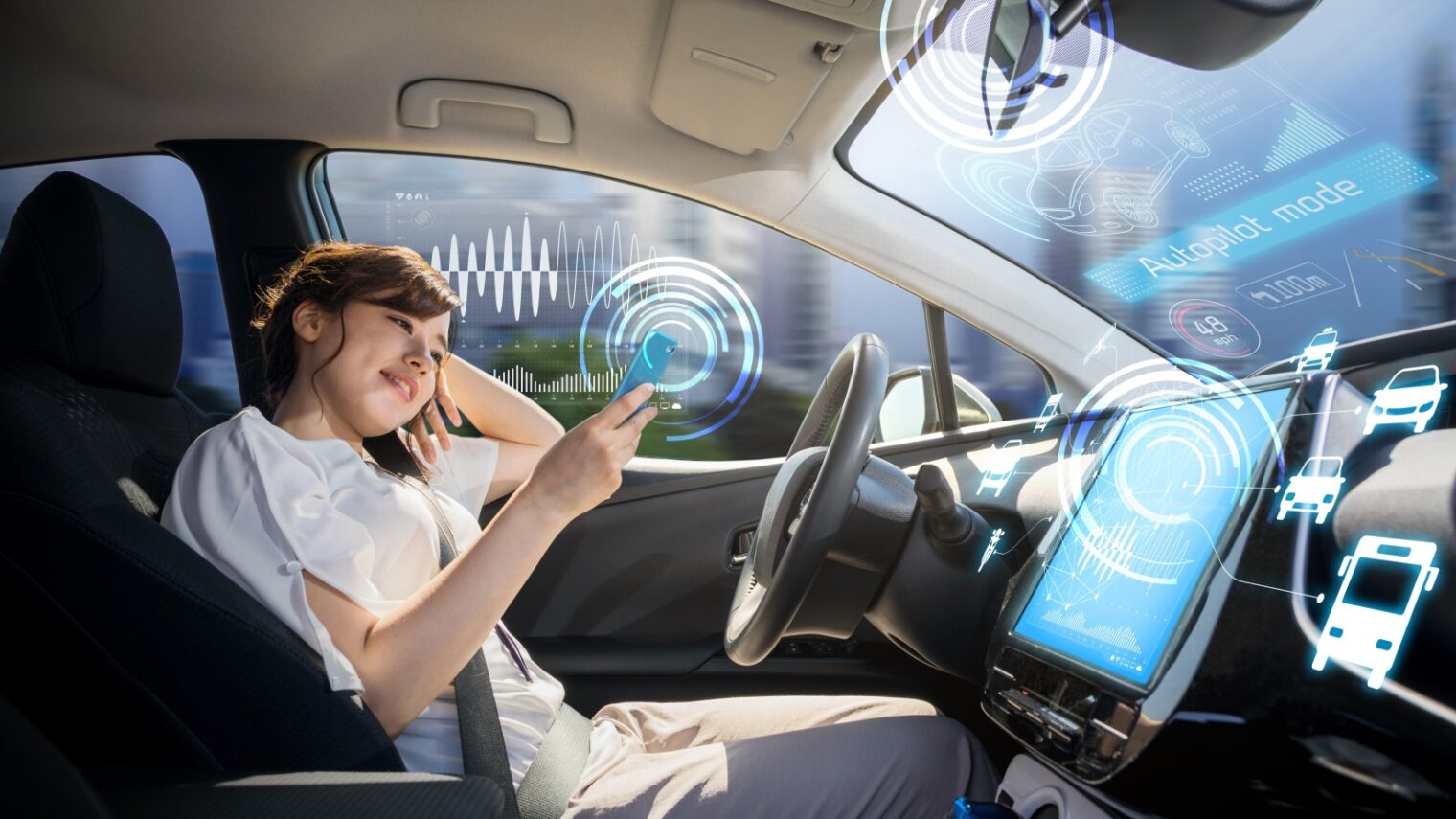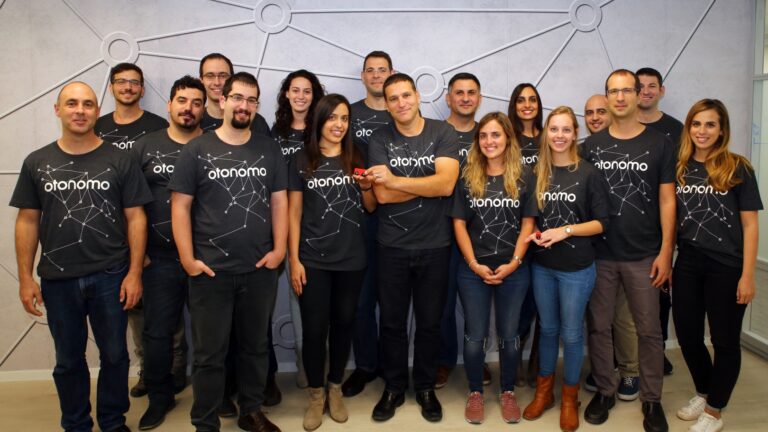“Car manufacturing is not about tires or brakes anymore, but the technology inside the car – the sensors and algorithms.”
How did Israel, a country that has no domestic car manufacturing industry, become a worldwide powerhouse for autonomous-driving technology (also known as self-driving cars)?
“We get that question a lot,” says Yaniv Sulkes, VP of business development and marketing for Autotalks, a leading Israeli startup in the autonomous driving space. “We’ll meet with a manufacturer and they’ll say, ‘You’re the 30th company we’ve seen from Israel!’”
Sulkes tells ISRAEL21c that the car business is going through a massive paradigm shift. If before it was all about “the engine, the power train and the design, now we’re getting into artificial intelligence, cybersecurity and network connectivity. It’s become an interdisciplinary domain and this is an area where Israel has a lot of IP [intellectual property] and experience.”
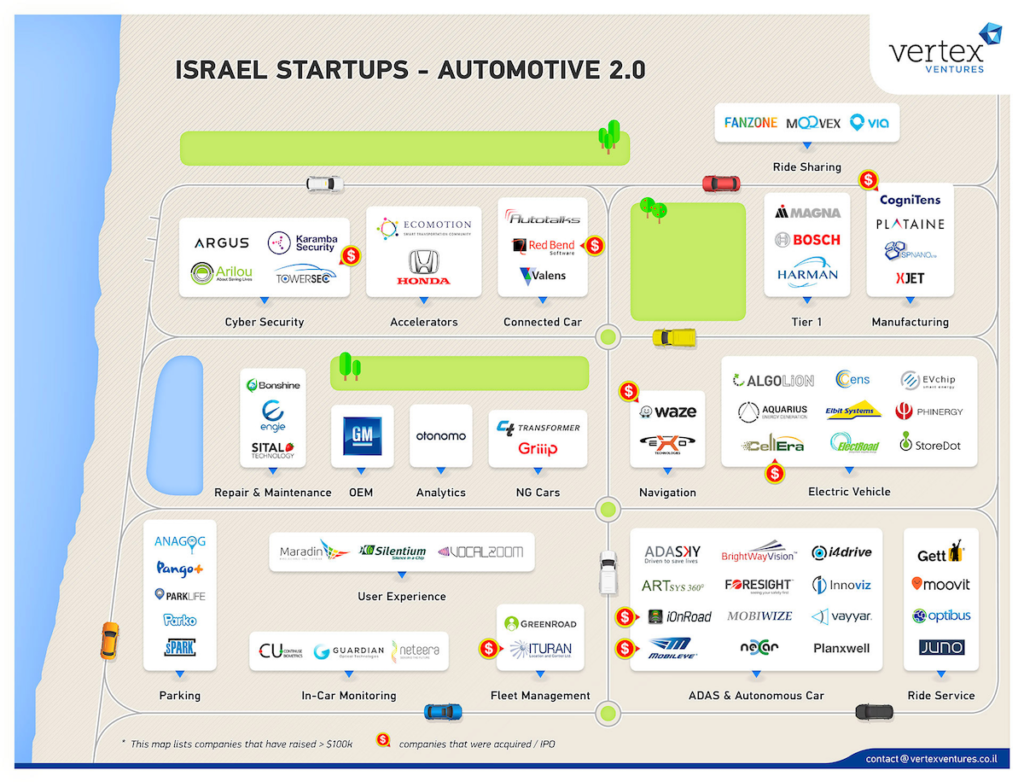
Alon Atsmon, an Israeli business advisor and investor in the burgeoning car-tech industry, agrees with Sulkes. “Car manufacturing is not about tires or brakes anymore, but the technology inside the car – the sensors and algorithms. It’s a natural next direction for the expertise Israel has built over the years.”
Here are our picks for the 10 hottest Israeli companies offering autonomous driving technology.
The Jerusalem-based company that’s made its mark with an annoying beep whenever you get too close to another car or change lanes without signaling was bought earlier this year by Intel for $15 billion. The reason: to turn Intel into a player in the autonomous driving space.
Mobileye makes integrated cameras, chips and software for driver-assist systems – the building blocks for self-driving cars. Intel Chief Executive Brian Krzanich said the acquisition was akin to merging the “eyes of the autonomous car with the intelligent brain that actually drives the car.”
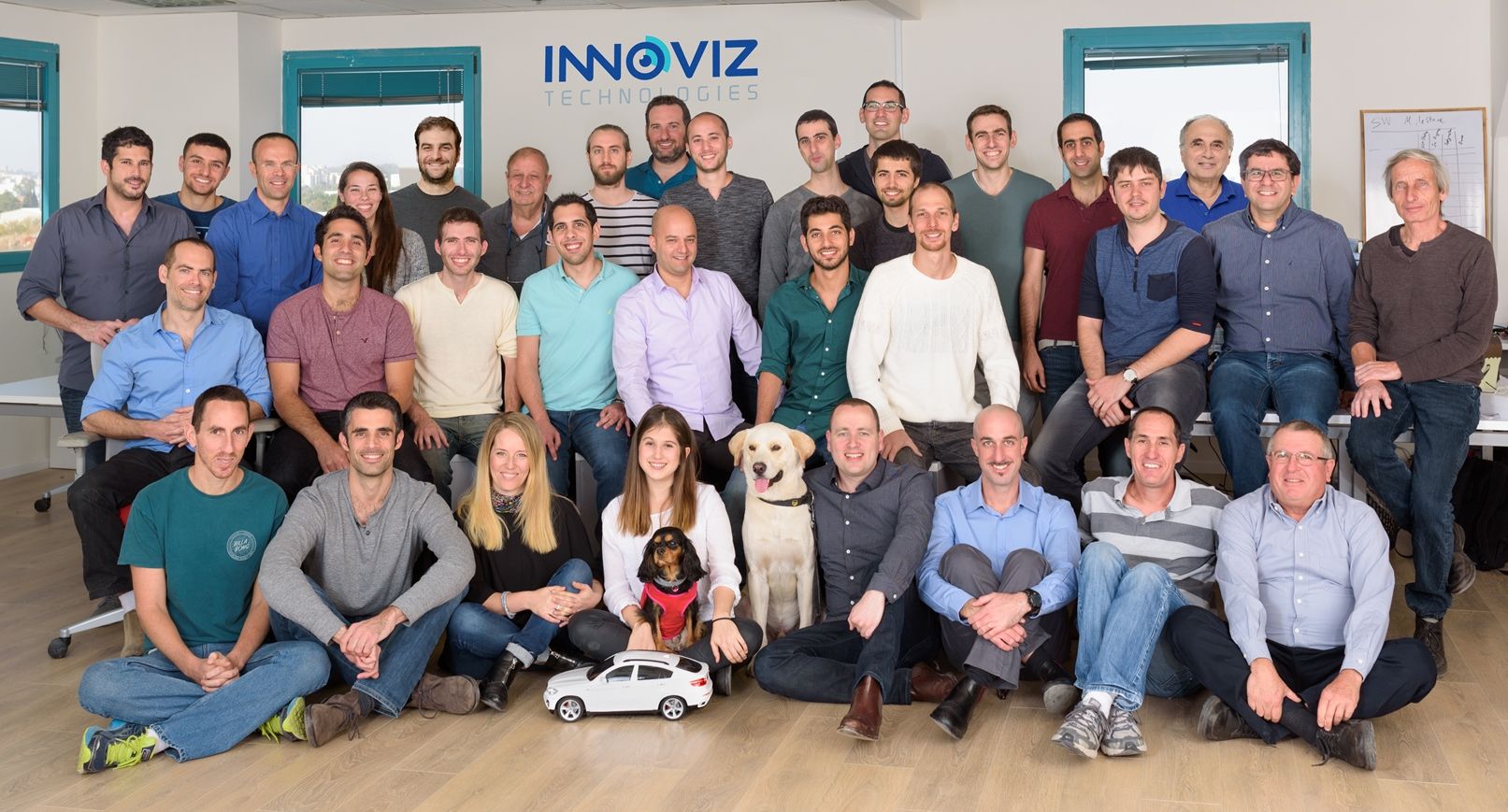
Haven’t heard of LiDAR yet? You will soon; it’s a key component enabling autonomous driving. An acronym for “light detection and ranging,” LiDAR uses laser beams to measure distance. It’s what allows self-driving cars to “see.”
InnovizOne automotive-grade LiDAR device offers high-definition 3D scanning, while InnovizPro is designed for testing self-driving cars. Innoviz’s proprietary sensing solutions will be integrated into UK-based Delphi Automotive’s systems to provide automakers with a comprehensive portfolio of autonomous driving technologies.
The company was founded in 2016 by former IDF members with experience in electro-optics, computer vision and signal processing.
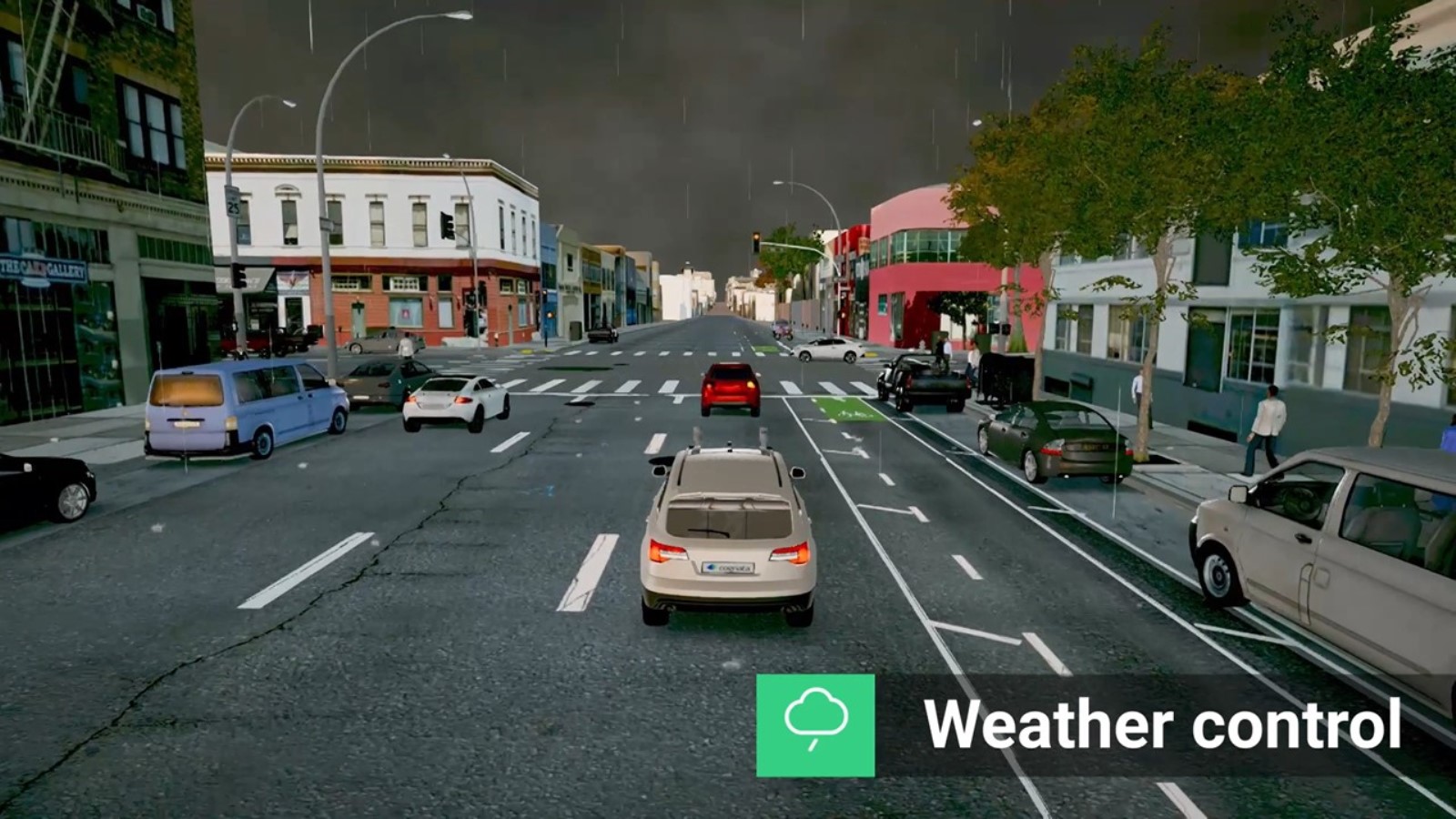
If InnovizPro makes it easier to test autonomous vehicles in the real world, Ness Tziona-based Cognata does the same in the virtual world.

The Rand Corporation reports that autonomous cars will need some 11 billion miles of testing to prove they’re better at driving than humans. That would take a fleet of 100 cars running non-stop over 500 years. Cognata uses artificial intelligence, deep learning and computer vision to simulate real cities in 3D.
For San Francisco, Cognata’s first virtual city, the company mapped every building and tree along with traffic models to study how autonomous vehicles drive and react. “We can drive millions of miles in a few hours,” Cognata CEO Danny Atsmon says.
This Petah Tikva startup tackles the same problem as Innoviz – sensors to help autonomous cars “see” – but does it using micro-antennas to detect light waves rather than LiDAR. The technology splits the difference between existing systems.
Like LiDAR, it uses a laser to illuminate the road ahead, but as with traditional radar, it treats the reflected signals as electro-magnetic waves. Oryx claims its system works better in bad weather, can see farther than LiDAR, uses much less energy, and brings costs down even further.
“Autonomous vehicles need much more powerful depth-sensing capabilities than what was originally thought; existing technologies simply cannot deliver them,” Oryx CEO Rani Wellingstein told Geektime.
On August 8, Oryx announced the closing of a $50M Series B funding round.
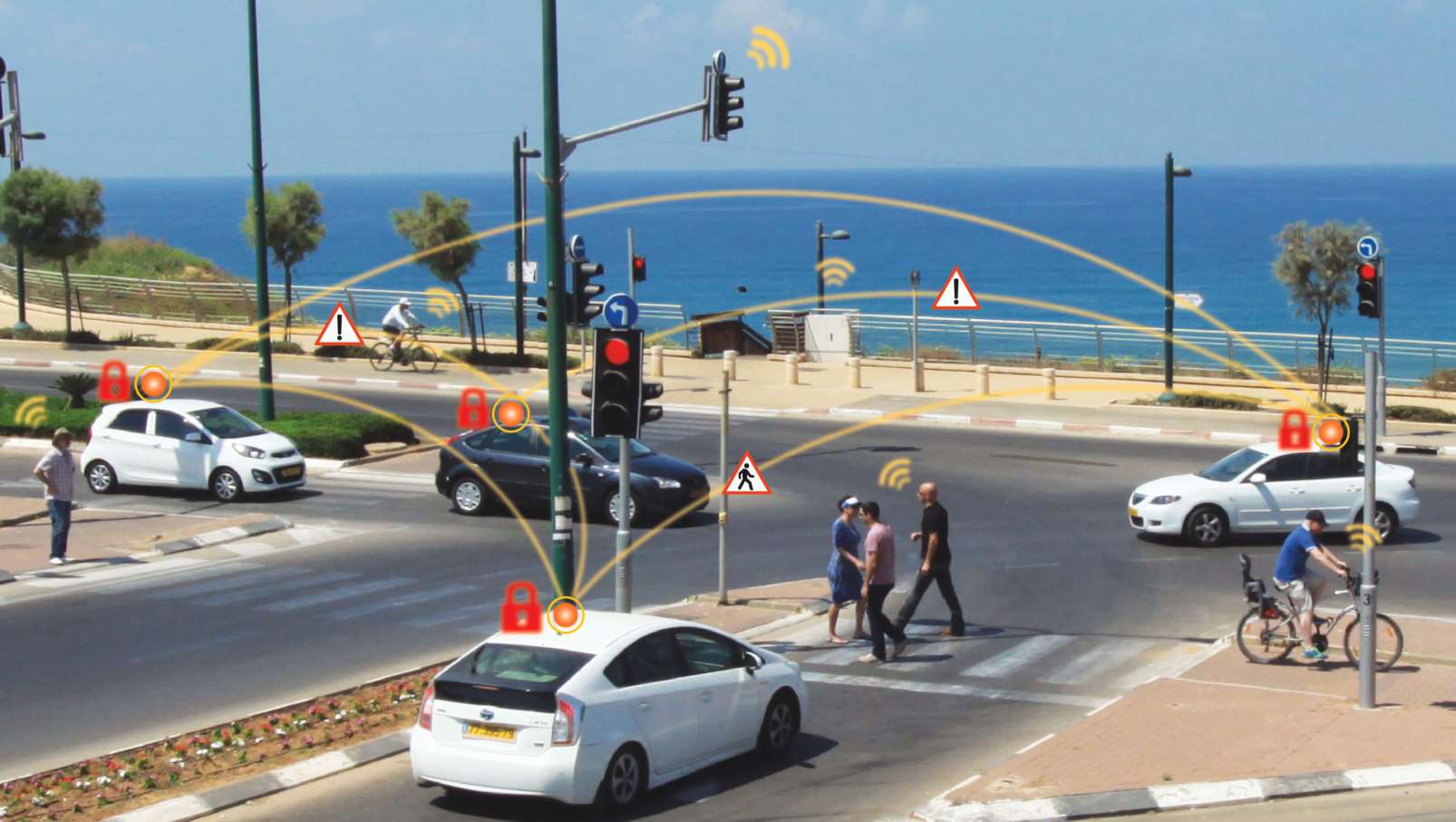
For all the advanced technology in self-driving cars, they still can’t see around corners. That boosts the potential for collision between two autonomous vehicles. Autotalks has a solution.
Two vehicles with an Autotalks unit installed can communicate with each other regardless of visibility. Autotalks can predict what will happen in the next five to 10 seconds, allowing enough time for a course correction, Autotalks CEO Hagai Zyss told ISRAEL21c .
Autotalks is currently promoting its B2V (bike-to-vehicle) chipsets connecting people-driven cars and motorcycles, but it’s applicable for autonomous vehicles as well. Autotalks is part of an emerging vehicle-to-vehicle standard in the US that would mandate the technology by 2021, and is opening three new sites — two in Japan and a third in South Korea — to provide close local support to Asian car manufacturers and automotive Tier-1 suppliers.
Your autonomous taxi or ride-share has no driver to tell you how many passengers can jump in the back seat or to remind you to buckle your seatbelt. Guardian Optical Technologies’ sensor scans the cabin for movement, distinguishing between still objects and people by looking for the presence of a beating heart.
Guardian’s system replaces existing solutions, such as seat-pressure monitors and seatbelt-tension detectors, bringing down costs and boosting simplicity of installation. Guardian’s sensors can even remind you if you’ve left something behind – whether that’s a purse or an infant.
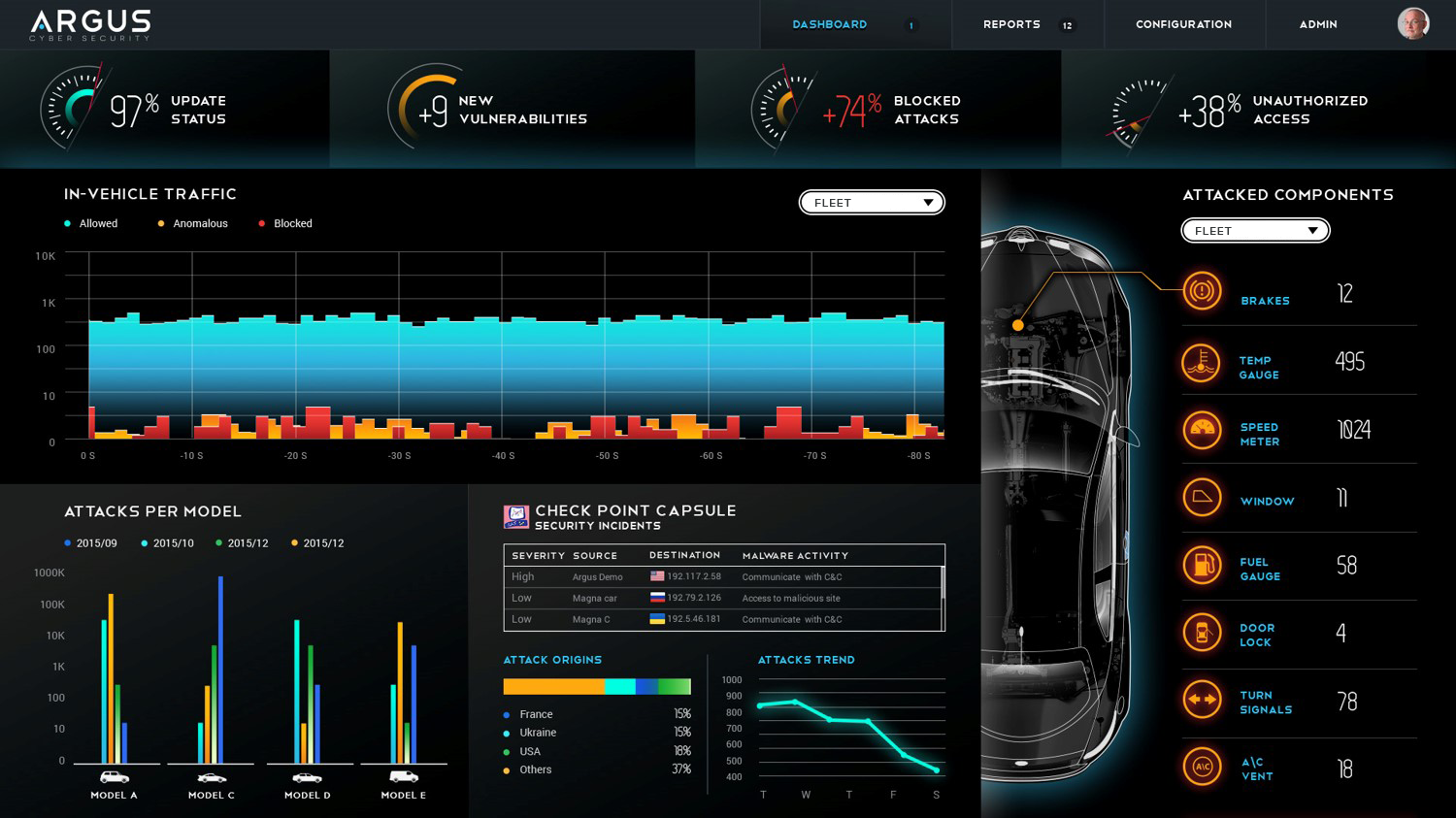
“The future will be less about traffic accidents and more about hacks,” says Ofer Ben-Noon, CEO of Argus Cyber Security. Both Argus and competing Israeli startup Karamba aim to keep today’s connected cars and tomorrow’s autonomous vehicles safe from the possibility that someone with ill intent could take control.
Argus, the bigger of the two, works with car manufacturers and equipment providers to embed its security into the car’s systems. Karamba focuses on securing the car’s most vulnerable points of entry for hackers: the infotainment center and the systems that keep it immobilized until being unlocked. Argus covers these two systems and adds telematics units, in-vehicle networks and aftermarket devices.
In June, Argus was named to The Wall Street Journal’s Top 25 Technology Companies to Watch.
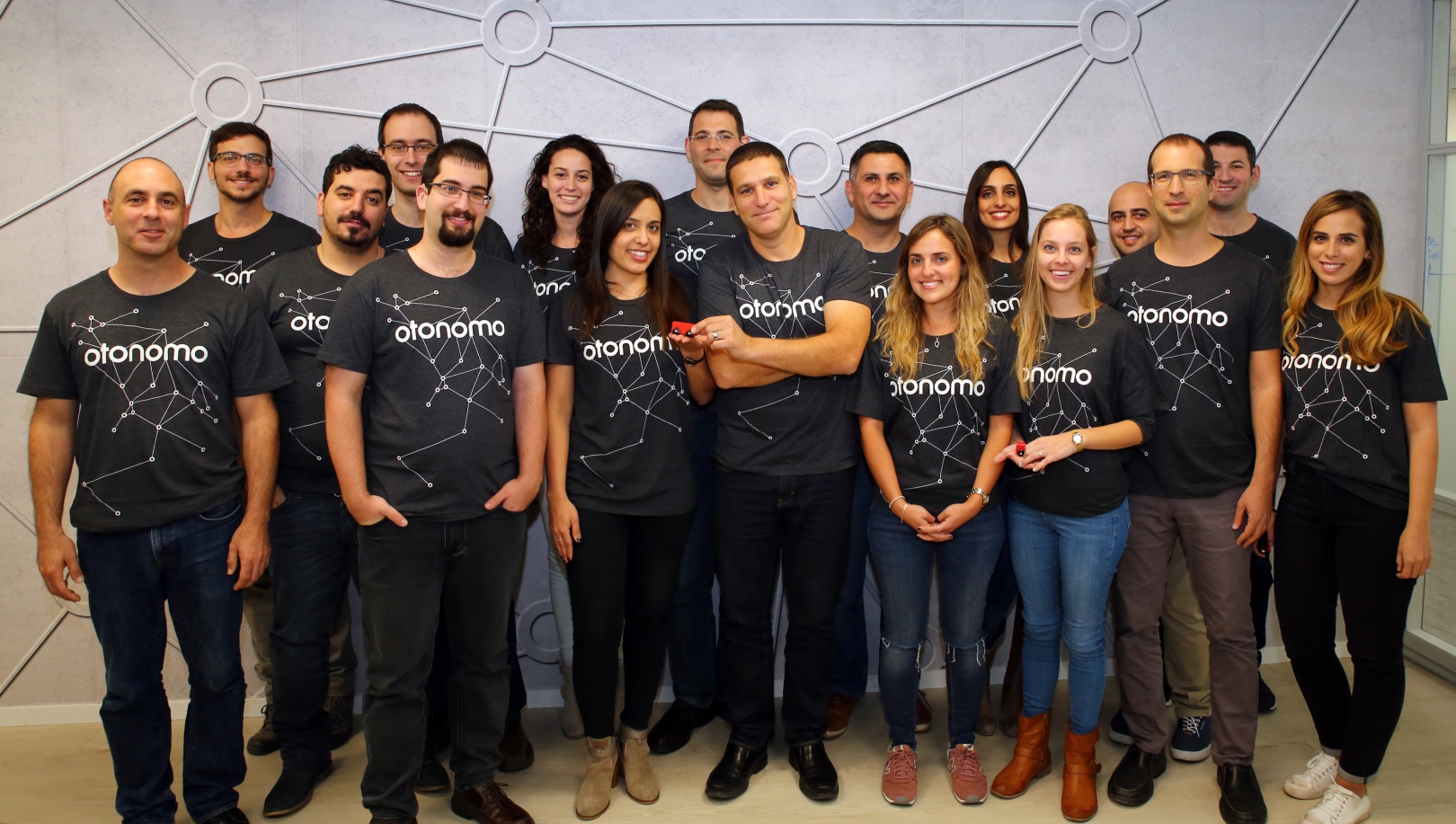
You might not think of your car as a computer, but that’s what it has become. And just as computers generate data about what their users are doing, so do connected cars, from fuel level to tire pressure, speed, trip duration and number of passengers. As autonomous driving becomes a reality, the amount of data will only increase.
Otonomo is doing for car-created data what Google did for search results. The company has developed an ecosystem for sharing driving information with third parties — insurance companies, fleet managers and car manufacturers. One goal is to use this data to improve future autonomous offerings.
“Google and Apple are the best in the world at monetizing data … the car guys understand it,” Otonomo CEO and cofounder Ben Volkow told Business Insider. Automakers “see us as a strategic partner to help play the same game.”
If you’re in New York, Russia, the UK or Israel and you need a taxi (a real one, not an Uber), you can summon one on your smartphone via Gett. While “Gett is not an autonomous vehicle tech company per se, it is, along with Mobileye and Waze, one of the most important new mobility companies in Israel,” investor Mike Granoff tells ISRAEL21c. (Granoff’s new Maniv Mobility, the first Israeli venture fund dedicated to mobility tech, recently raised its first $40 million.)
Gett certainly has a stake in the evolving self-driving car space – when taxis go autonomous, Gett plans to be there and the user preference data it’s amassed may give it an edge over traditional taxi services. Gett raised $300 million from Volkswagen last year and paid $200 million in April 2017 to buy rival Juno.
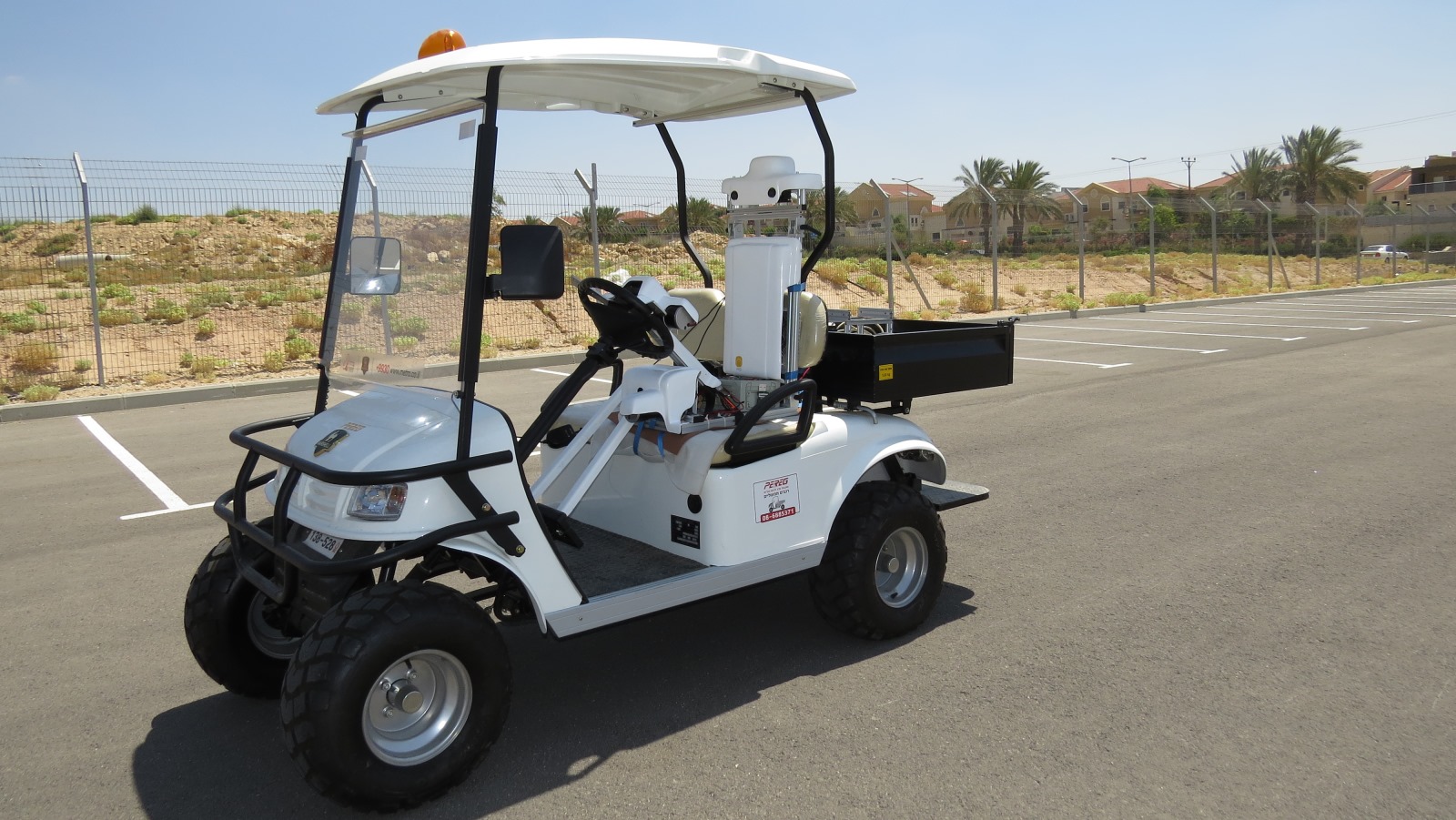
You’re hankering for a self-driving vehicle, but you already own a car. It’s IVO to the rescue. IVO (“intelligent vehicle operator”) is a robotic chauffeur that can be placed in the driver’s seat of any car. IVO uses a handful of cameras, sensors and mechanical devices to depress the brakes and turn the steering wheel. Sophisticated algorithms make up for the relatively simple sensors.
And it’s inexpensive – just $1,600 today with prices expected to fall if IVO is manufactured at scale. That’s a big if: IVO is still a prototype being built in a robotics lab at Ben-Gurion University of the Negev. But project head Oded Yechiel is bullish on the IVO opportunity, which means “you can still utilize the fleet of worldwide cars,” he told the Live Science website.” IVO weighs 33 pounds and can be carried in a suitcase.




